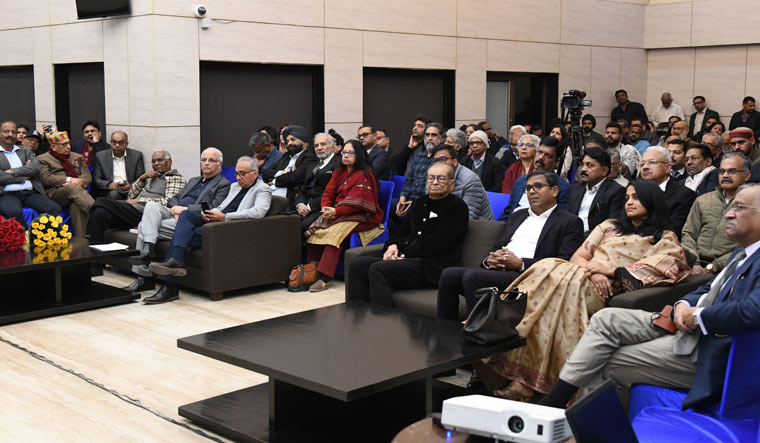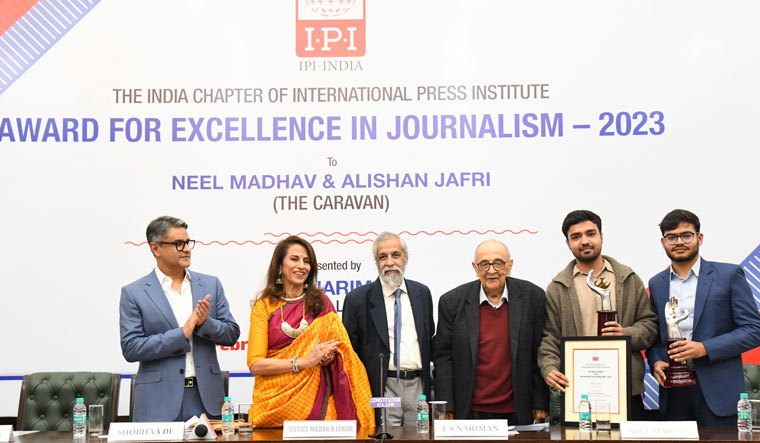Freelance journalists Neel Madhav and Alishan Jafri won the IPI-India Award for Excellence in Journalism, 2023, for their story on fake videos published in 'The Caravan' magazine.
The story exposed how a group of YouTubers were setting the agenda for television debates and creating bulk content for certain political parties.
The jury, headed by Justice Madan B. Lokur, former Judge of the Supreme Court, and comprising of chairman of IPI-India and chief associate editor and director of Malayala Manorama and THE WEEK Riyad Mathew, Press Trust of India editor-in-chief Vijay Joshi and popular columnist Shobhaa De, picked the winning duo for their expose of the digital ecosystem that spreads polarising narratives.
“In a lot of cases, the same individual appeared in different roles in videos pushing a particular political narrative. It is a symbiotic relationship wherein the Youtubers are earning a lot of money and the political parties get a lot of propaganda content,” said the two winners.
Eminent jurist F.S. Nariman, who presented the award, expressed disappointment over the fact that India has fallen in the world press freedom index. “We are past the age of free speech and entering another age – an age of thought control. You will say what thought-control prompts you to say. It is a serious problem,” he said, after watching a video made by the two award-winning scribes on how they exposed rackets that were making fake videos and spreading hate.
 Audience at the IPI award function | Sanjay Ahlawat
Audience at the IPI award function | Sanjay Ahlawat
“The reason for India’s drop in the world press freedom index is that governments at the Centre or state operate in a manner that much of the media are compelled to look over their shoulder to see if government officials are smiling at them. The condition is not at all suited for a free press,” said Nariman.
Justice Lokur, who presided over the function, said, “Over the last few years, we have had an overdose of hate. In most instances, it was restricted to hate speech, but soon the venom became more poisonous and resulted in violence against innocent persons, including youngsters. In the absence of any restrictive or coercive action by the police, vigilante groups got emboldened and the consequence was an outbreak of lynching.”
Lokur also pointed out that an unintended consequence of the Supreme Court giving directions on the matter is “that data about lynching vanished from the public domain, and the National Crime Records Bureau stopped collecting data on lynching.”


